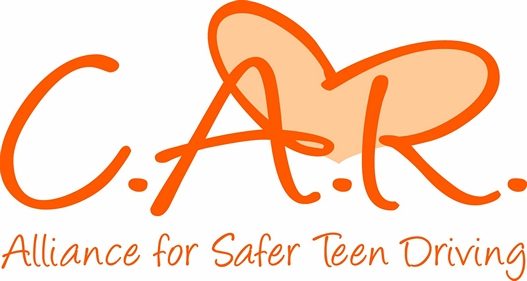Parents and older family members are the primary teachers and influence for new drivers in the family. What you do in a car behind the wheel greatly influences teens as they work out these new skills.
Consider this: if you told your teen to never drink and drive while you yourself were driving with a can of beer in your hand, how effective would that be?
Now think about every time you’ve ever answered a phone call or text while driving- or read an email or your SM while at a light. Maybe you said, “This is really important.” or “I need to respond to this.” Or maybe you said nothing because you feel like it’s really not that dangerous for you?
One question we hear time and again is “Can you please tell my child how dangerous this all is?” And most of the time if we ask the teen, “Have you ever seen your parents use a smart phone in the car?” they will say ‘yes’, they definitely have.
As adults we can to better. If you fail to show that you can drive without answering a call or text or respond to notifications on your phone, then what you are really saying by your example is, ‘Don’t do this today- when you get older then it’s ok.’
The responsibility of the driver is to safely drive. Period. And if you believe that just because you’ve been driving for years that you are immune to being distracted, exhibit slower reaction time and are generally less attentive to the road – then you are just fooling yourself.
We are all human and the human mind simply cannot try to concentrate on 2 things at once and do them as well as if they were one of them alone. It’s a fact and the message is damaging to teens who see the behavior and assume that it is a tolerable risk. But the fact is that distracted driving crashes are as prevalent and cause as much death and damage on the road as intoxicated drivers.
Even you are at the same risk as someone who is legally drunk by simply talking on a cell phone. This has been proven time and time again in peer reviewed studies and corroborated in experiments (see this video).
In a world that’s so busy and so many of us feel compelled to always be present both socially and professionally through an electronic medium, we need to show our teens that it is OK to wait until you get to your destination to see who called or to catch up on messages. The most important thing to you as a parent should be that other drivers respect your teen’s life enough to drive safely and without distraction. Should your behavior or your teems be any different?
The addiction is real. But as adults we must show teens and other drivers that it’s a choice that you have to make every time your phone makes a noise. And by not reaching for the phone at every light and ignoring the pressure to always be ‘caught up’ will prove to them that it can be done. Lead by example.
There are many apps built into phones for ‘driving mode’ to stop the phone from allowing you to use it while in motion, and you can change your voicemail message to say “Hi, I’m either busy or I’m driving and I will call you back as soon as I am available.”
